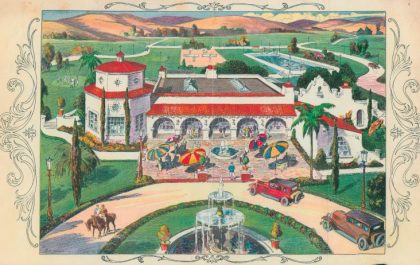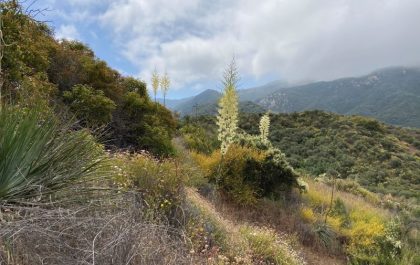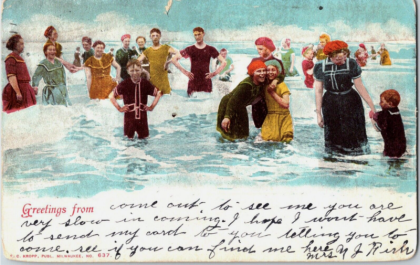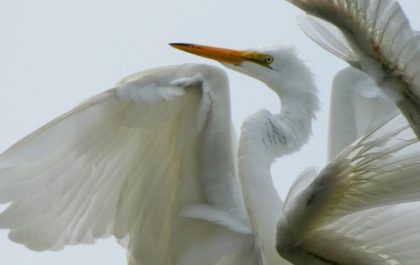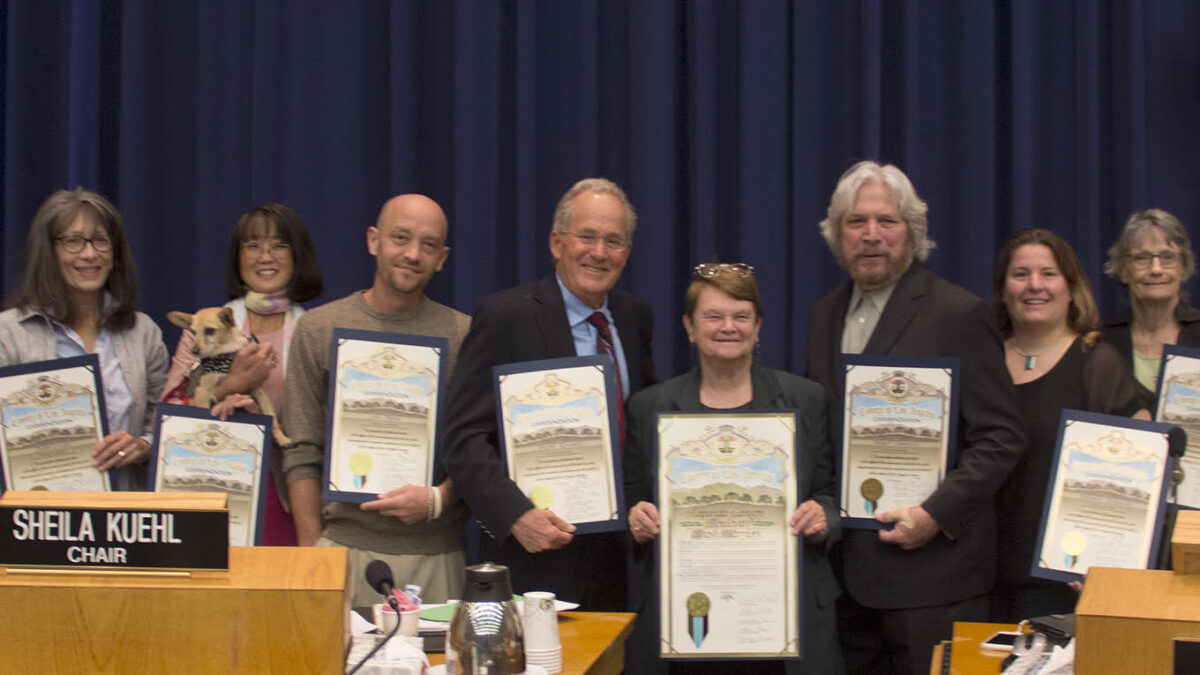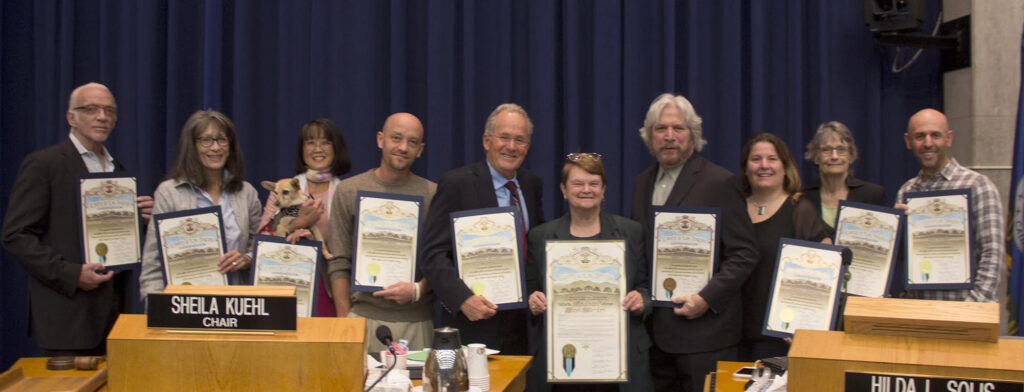
Driving down the “S” curves early on a beautiful weekend morning, one might see a woman with an orange vest picking up paper with a trash picker. Other environmental warriors join her. Why are they giving up their weekend to pick up trash? What could motivate them to risk their lives on a busy road? Don’t they know that more trash will be there a week from now? They are not simply volunteering to clean the canyon—they are nourishing a part of their souls.
Humans thrive on connection and enjoy the “feel good” chemicals released through acts of service. The warm fuzzy feeling we get through helping others is a biochemical response. Research shows that helping others not only feels good but is actually good for our health. That holds most true when you give to a specific person or are otherwise closely connected to the work. Although, as long as it is given graciously (and some might argue, even begrudgingly), every act of charitable service has merit. And really, that is what turns an otherwise mundane task into something that lights us up neurologically: the desire to do good—even when it comes with personal sacrifice.
Service is a way to bring us to greater awareness. The consciousness of “me and mine” is the consciousness of a baby. As we grow up, we learn to help others. One of the first lessons we learn is to share with our siblings or friends. We realize that in sharing, our joy increases and expands. Much of our pleasure comes from helping others, not ourselves. Later in life, bored with focusing on the ‘I,’ we shift toward selflessness; we may get married, have children, get a pet, switch careers – anything to shift focus from “me.”. These steps force us to grow and mature. We become interested in the good of the many. Kahlil Gibran wrote in The Prophet: “There are those who give with joy, and that joy is their reward.” That truth brings to mind a bumper sticker affixed to a local’s car. It reads: “I hope something good happens to you today.” Marvelous! Is a bumper sticker an act of service? Yes. Absolutely. Being of service is simply keeping others in mind.
If there are a hundred people in a town and they are each only interested in themselves, it will be a miserable place to live. On the other hand, if they are all looking out for one another, it will be a delightful place to live. Our Topanga secret is that spirit of neighborliness that extends along Highway 27.
Not all service is created equal. The medieval Jewish philosopher Maimonides graded charitable works (tzedakah). The highest form of service was helping someone to help themselves. The lowest was to give unwillingly, out of obligation. Interestingly, the giver’s motive was vital to the quality of the gift. The size of the gift was of no importance. If you gave with the expectation of getting something in return (such as recognition), the quality of service ranked low.
The purest service is when the service involves sacrifice. If we give up something we enjoy to help someone, the gift has more meaning for us. It also can mean giving up on trying to be right or prove a point to allow another to “save face.” It means doing the dishes when no one wants to, or taking the smaller slice of pie. It means not losing your cool when your kids are being annoying. The more of ourselves we give up, the more worthy the service. The more perfect the service, the happier we are. If we gratify our ego by giving, we taint the service and diminish its soul satisfaction. You step out of yourself and step into higher consciousness. Unselfishness accelerates our evolution.
What are some ways to incorporate service into the existing framework of our lives? We serve our clients, for example. We chose careers that allow us to help others. We are in service indirectly when we volunteer with causes and organizations important to us. We are of service to our community when we clean up Topanga beach or remove crayfish from the creek or donate a book to one of our many little free libraries. And service does not have to be more than a smile. Comforting a lonely person or encouraging someone who doesn’t feel capable is a beautiful expression of kindness. There is service at home to our families and children: Being cheerful, staying out of moods, resisting the sarcastic jibe or unconstructive comments, and doing the dishes and all the repetitive daily chores without seeking acknowledgment, reward, approval, or recognition.
We can make our job a service by viewing everything we do as a gift to others. Some jobs are conducive to this attitude—we can see ourselves as the healer, teacher, or warrior, in others we must stretch, but in any work we will be tested. There will be appreciative clients, and there will be faultfinders. There will be grateful employees, partners, co-workers, and those who are never happy. The constant in this changing environment is our goodwill and service to those who appreciate us and those who don’t.
To be of service, we must take care of ourselves. To be able to give, we must have something to offer. As the saying goes, you cannot pour from an empty cup. The paradox is that the more we give, the more we receive and evolve, which is why we advise people who are absorbed in their troubles, “Volunteer at a children’s hospital or work at a homeless shelter.” To a receptive soul, this may wake them from their self-pity. A person caring for a terminal patient needs a break. A parent taking care of a chronically ill child needs to refresh periodically. There is a balance between self-care and taking care of others.
Next time you are driving down the “S”’ curves and you see men and women picking up trash, don’t honk. Ask yourself, “how can I serve?” When you find the answer, go forth, and spread your good everywhere.
Editors Note: Read more about the Topanga Trash Warriors and other volunteer organizations at https:topanganewtimes.com/2020/09/25/a-community-of-eco-heroes-and-environmentalists/
This article is a collaboration between Jill Cotu and Peter Walzer. Peter and Jill are neighbors in Topanga. Jill is a massage therapist and energy worker. Peter is a lawyer and a longtime member of the Self-Realization Fellowship. They co-authored this piece, and are working on a series of “the power of” articles.
